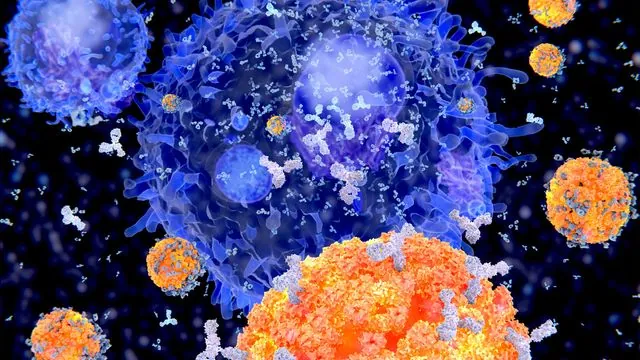
Groundbreaking Study Reveals Surprising Impact of Fatty Acids on Brain Function
2024-12-12
Author: Sarah
Introduction
In a stunning revelation that could reshape our understanding of brain health, researchers from Weill Cornell Medicine have found that free fatty acids, particularly an omega-3 fatty acid known as DHA, significantly reduce the uptake of glutamate—a crucial neurotransmitter in the brain. This process occurs by disrupting the sodium ion gradient that powers glutamate transporters, essential proteins responsible for clearing excess glutamate from the synaptic cleft after neurotransmission.
Study Publication and Importance
Published on December 6 in the Journal of Biological Chemistry, the study has been recognized as an Editor’s Pick, underscoring its importance in neuroscience. Researchers warn that an excess of glutamate can lead to neuronal death and is linked to chronic conditions such as Alzheimer’s and Parkinson’s diseases. This discovery suggests that fatty acids may have a broader influence on various membrane proteins, raising new questions about their role in cellular functions.
Expert Insights
Senior author Dr. Olga Boudker, who leads the physiology and biophysics department, explains, “The ability of polyunsaturated fatty acids to disrupt sodium ion gradients can have critical implications, not just for glutamate transporters but for other ion channels and transporters across the cell membrane. If these fatty acids accumulate in certain areas within cells, they could alter the functionality of many nearby proteins.”
Research Methodology
Prior investigations into fatty acids’ effects on glutamate levels have been inconclusive, often producing conflicting results due to the complexity of using tissue and cellular models. To overcome these limitations, the research team developed a refined method whereby they isolated a model of the glutamate transporter and embedded it in artificial membranes. This approach allowed for a focused investigation of the transporter's behavior, revealing that the fatty acids inhibited its function without directly interacting with it. Instead, the fatty acids balanced the ion concentrations across the membrane, effectively depriving the transporter of the energy needed to function properly.
Future Research Directions
Dr. Xiaoyu Wang, the lead author of the study, stated, “We meticulously investigated every possibility to uncover this mechanism.” While the implications of this discovery are not yet directly applicable to clinical treatment, it is critical for future research in the area. The findings encourage scientists to revisit their experimental designs regarding ion gradients in the context of fatty acid effects.
Significance of Fatty Acids
With fatty acids recognized as important signaling molecules within cells, this new understanding could pave the way for further investigations into their roles in various cellular processes and disease mechanisms. The research team is now setting its sights on identifying additional regulators of glutamate transporters beyond fatty acids, including their interaction partners and the overall lipid environment within cells.
Conclusion
In conclusion, this pioneering study not only highlights the unexpected impact of dietary fatty acids on brain function but also opens new avenues for understanding complex neurological diseases, leading to potential breakthroughs in treatment and prevention strategies. As researchers continue to delve into the multifaceted roles of fatty acids, the implications of this study could resonate through the fields of nutrition and neuroscience for years to come.





 Brasil (PT)
Brasil (PT)
 Canada (EN)
Canada (EN)
 Chile (ES)
Chile (ES)
 España (ES)
España (ES)
 France (FR)
France (FR)
 Hong Kong (EN)
Hong Kong (EN)
 Italia (IT)
Italia (IT)
 日本 (JA)
日本 (JA)
 Magyarország (HU)
Magyarország (HU)
 Norge (NO)
Norge (NO)
 Polska (PL)
Polska (PL)
 Schweiz (DE)
Schweiz (DE)
 Singapore (EN)
Singapore (EN)
 Sverige (SV)
Sverige (SV)
 Suomi (FI)
Suomi (FI)
 Türkiye (TR)
Türkiye (TR)